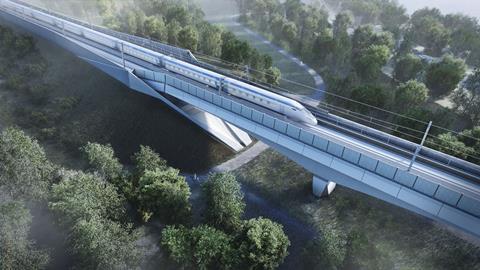
UK: The Office of Rail & Road has ruled that the future infrastructure manager for the London to West Midlands Phase One of High Speed 2 will be able to levy an Investment Recovery Charge on future operators using the line.
An IRC is an exceptional charge that infrastructure managers can levy in some circumstances to recover some or all of the long-term costs of a project. It is an exception to the general principle that track access charges should be based on the costs directly incurred as a result of operating a train service.
The ability to levy an IRC is subject to a three-criteria test set out in the Railways (Access, Management & Licensing of Railway Undertakings) Regulations 2016.
The infrastructure manager must demonstrate that:
- the IRC is for a specific investment project;
- the IRC increases efficiency or cost-effectiveness;
- the project could not have been undertaken without the prospect of such higher charges.
ORR has concluded that HS2 Phase One would not have been approved without at least part of the long-term cost of the project being recovered from users.
The Department for Transport has not yet determined the operating model which will be applied to HS2, but ORR says the sale of an infrastructure concession — the model adopted for High Speed 1 — would, in practice, require an IRC to make it a viable. ORR does not consider that there is a realistic possibility that the Secretary of State would have approved HS2 Phase One if the only options were state control or an exclusive franchise.
Announced on August 11, the decision to allow the levying of an IRC forms part of ORR’s determination on the charging framework for HS2, which will be finalised nearer the start of operations.



